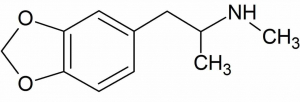The recent FDA approval of the psychedelic MDMA (ecstasy), for treatment of post-traumatic stress disorder (PTSD), is, as Khaliya wrote in a New York Times op-ed (November 3rd, 2017), “a beacon of hope” — for adults whose trauma-induced agitation and fear, nightmares and social withdrawal have not been relieved by conventional psychotherapy and psychopharmacology, as well as those who feel objectified and stigmatized by these approaches.

The FDA approval is also a victory for common sense and a call to make available non-pharmacological approaches that create just as dramatic changes and are already demonstrating great benefits. For example, meditation, like MDMA, increases activity in areas of the prefrontal cortex responsible for judgment, self-awareness, and compassion, and downregulates the fear and anger of the amygdala. And physical exercise, like MDMA, raises levels of the neurotransmitters dopamine, serotonin and norepinephrine, decreasing anxiety and improving mood.
Combining these and other self-care approaches, with and without MDMA, and offering them in supportive small groups, will likely enhance outcomes and also facilitate outreach to whole populations that are traumatized. The Center for Mind-Body Medicine’s ten-week long small group model is an example. It includes such mind-body techniques as meditation, guided imagery, biofeedback, and yoga, as well as self-expression in words, drawings, family trees, and movement. Published studies on war-traumatized children and adults in Kosovo and Gaza have shown that this approach reduces symptoms of PTSD by 80% or more. In Gaza alone, 45,000 children and adults have participated in the 10 week long small groups and 110,000 more have learned basic self-care, in individual and family consultations and classroom workshops.
MDMA may well prove a powerful trauma healing ally. It is, however, only one answer, and one that is never likely to be available to all of the millions of traumatized people here in the United States and around the world. Hopefully, the FDA approval will open scientists’ minds and bring public funds to the many approaches that help people learn from and grow through, rather than be overwhelmed and disabled by trauma.



